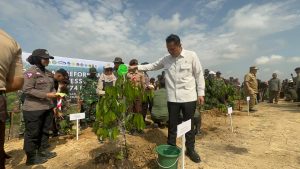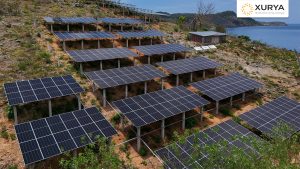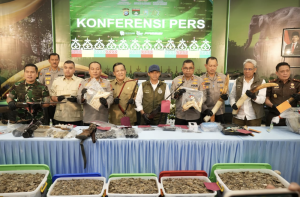Jakarta – The Special Task Force for Upstream Oil and Gas Business Activities (SKK Migas) urges that the Revision of the Oil and Gas Law include mandatory provisions for allocating exploration funds from contractors’ revenues. SKK Migas Head Djoko Siswanto said on Wednesday, 12 November, that without adequate financial support, new reserve exploration activities would become increasingly limited and potentially threaten long-term energy security.
Oil and gas exploration activities in Indonesia are threatened with decline, not because of a lack of potential resources, but because of a lack of funding. To date, no national bank has dared to provide credit for oil and gas exploration due to the high risks involved.
“No domestic bank is willing to finance exploration activities because the risks are too high,” said Djoko.
He emphasised that the government has indeed improved the investment climate, ranging from simplifying licensing procedures to adjusting fiscal schemes. However, these measures are insufficient if the issue of exploration funding remains unaddressed. “We have tried to improve the fiscal situation through various methods, including profit-sharing schemes and split negotiations. We have also expedited the licensing process. But the most crucial issue remains the budget for exploration,” he said.
As a solution, SKK Migas proposed a mandatory provision for exploration funds to be set aside, as stipulated in the Revised Oil and Gas Law. This proposal mirrors practices in several developed countries, such as the United Kingdom and Malaysia, where a portion of oil and gas companies’ revenues is returned to support exploration in new areas.
“We can learn from the United Kingdom and Malaysia. There, contractors such as BP and Petronas set aside part of their revenue for exploration. As a result, they have successfully discovered large gas fields in new areas and are now enjoying a surplus of national gas supply,” explained Djoko.
Promote energy independence
According to Djoko, if a similar mechanism were implemented in Indonesia, exploration activities could continue without relying entirely on bank financing. That way, the oil and gas potential in frontier areas — such as Eastern Indonesia and the deep sea — could be more aggressively exploited.
He emphasised that without new discoveries, national oil and gas production would continue to decline, making Indonesia increasingly dependent on energy imports. “Exploration is an investment in the future. If we don’t do it now, production could decline dramatically in the next few years,” he said.
The revision of the Oil and Gas Law currently being deliberated in the House of Representatives is expected not only to reorganise institutions and licensing, but also to ensure the establishment of a sustainable funding mechanism for exploration, so that the upstream oil and gas sector regains its momentum and supports national energy independence. (Hartatik)
Banner photo: Gary Bembridge/Wikimedia commons















